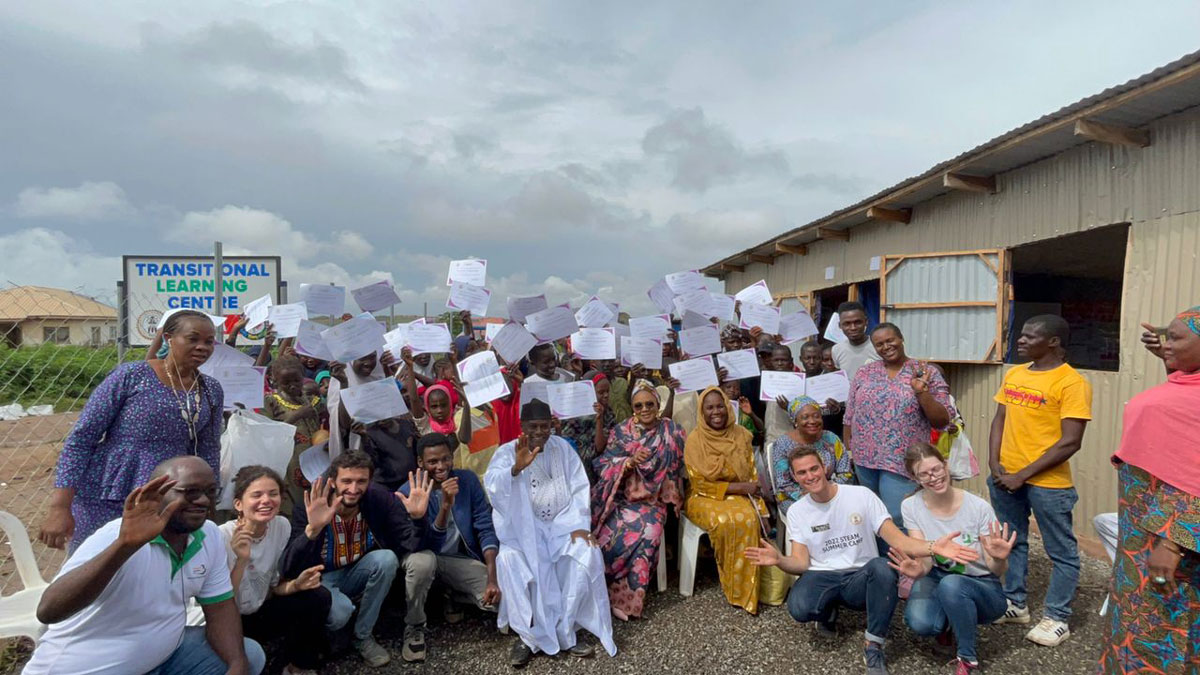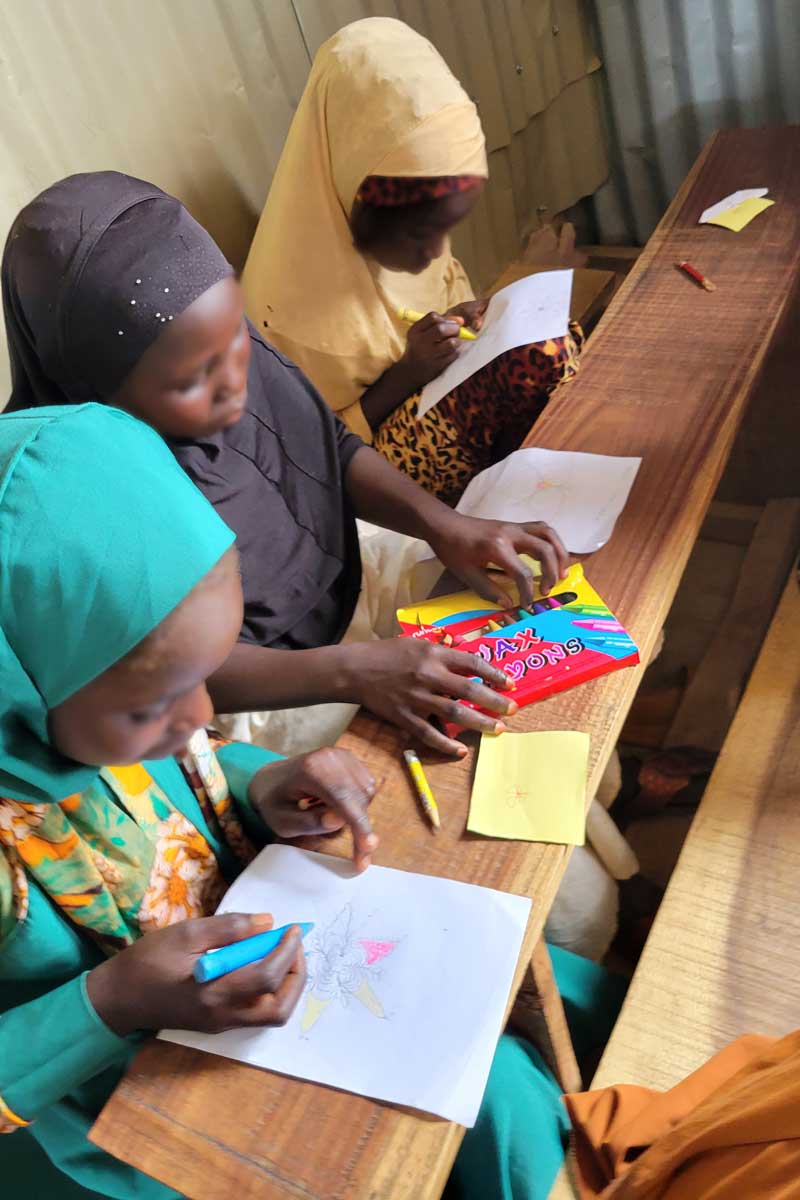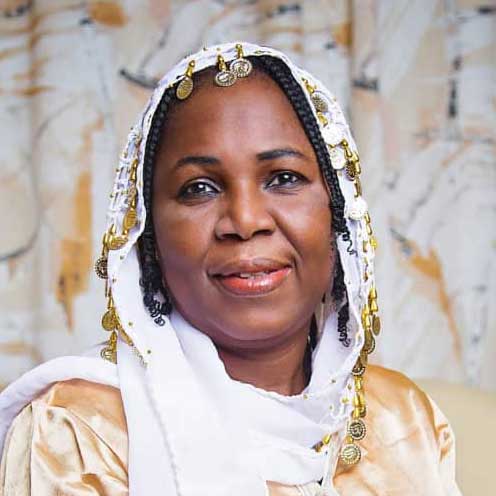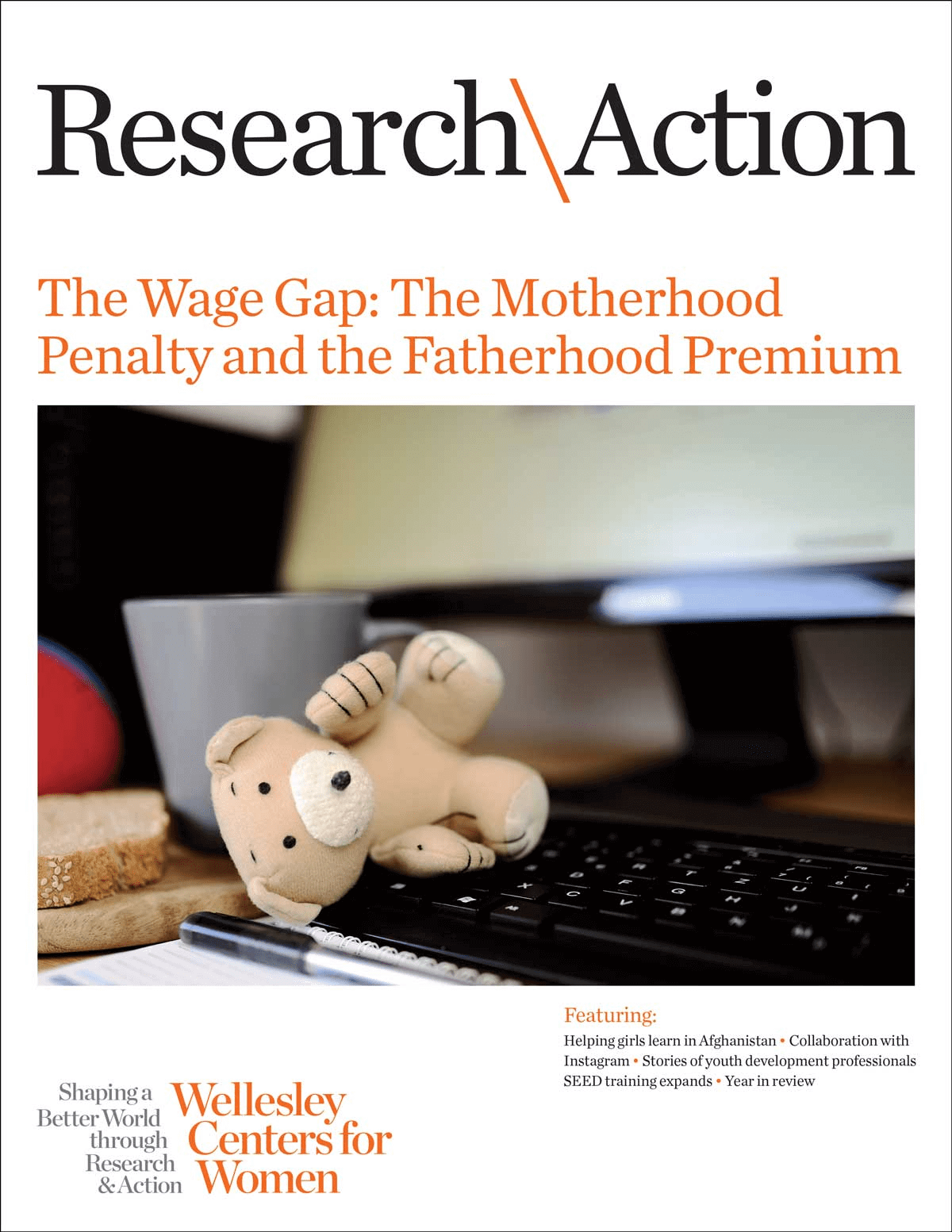Commentary by Hauwa Ibrahim, J.D., S.J.D., M.L.
 Nigeria, rich with its cultural diversity and natural resources, faces many social and economic challenges that threaten the stability of the country. Sometimes, under the guise of religion, extremist groups recruit youth by offering them a sense of identity and purpose. Science, technology, engineering, arts, and math (STEAM) can pull these pupils out of the jaws of groups like Boko Haram. This past summer, WCW once again hosted STEAM summer camps in Nigeria that offered students the opportunity and space to think, create, innovate, criticize, and strategize.
Nigeria, rich with its cultural diversity and natural resources, faces many social and economic challenges that threaten the stability of the country. Sometimes, under the guise of religion, extremist groups recruit youth by offering them a sense of identity and purpose. Science, technology, engineering, arts, and math (STEAM) can pull these pupils out of the jaws of groups like Boko Haram. This past summer, WCW once again hosted STEAM summer camps in Nigeria that offered students the opportunity and space to think, create, innovate, criticize, and strategize.
In August and September, the STEAM camps took place in Waru, Wassa, and Kuchingoro, internally displaced persons (IDP) camps around the Federal Capital Territory near Abuja, Nigeria. Over 600 children ages 10-16 participated in the camps, with five instructors delivering courses in STEAM subjects. Instruction was centered around practical and hands-on activities that ignited curiosity and interested children, giving them the spark to not only believe in themselves, but also to know they can be anything they want to be—instilling the spirit of “I think, therefore, I am!”
I led a team of students and alumni of the Global Governance program at the University of Rome, Italy, including Andrea Travagli, Giulia Desideri, Michelle Pott, Arman Mulić, Khadija Feroz, Ahmed Mua’zu, as well as other volunteers. WCW Senior Research Scientist Wendy Wagner Robeson, Ed.D., sent crucial supplies of STEAM kits from the U.S. to Nigeria.
 With minimal instruction, pupils performed science experiments related to density, pH indicators, robotics, coding, and other topics. They drew on their creativity and culture to express themselves through beading and jewelry making. Mathematics was taught using fun-filled activities such as jokes, games, challenges, and races.
With minimal instruction, pupils performed science experiments related to density, pH indicators, robotics, coding, and other topics. They drew on their creativity and culture to express themselves through beading and jewelry making. Mathematics was taught using fun-filled activities such as jokes, games, challenges, and races.
The Nigerian National Commission for Refugees, Migrants, and Internally Displaced Persons, led by Honorable Federal Commissioner Iman Suleiman-Ibrahim, provided the team with transportation, security arrangements, and volunteers and opened the IDP camps for us. Volunteers from an organization called Beyond Mentors Community Care Initiatives were irreplaceable during our teaching weeks, providing fundamental support and translations to local languages. The IDP camp leaders supported us every step of the way. The Nigerians in Diaspora Commission and the North-East Development Commission oversaw our stay, offering us the opportunity to try local dishes and hosting us for conferences and news interviews.
Every pupil that attended the camps went home with a STEAM kit and made a promise that they will use their kit to teach at least 10 other children. We also encouraged teachers and volunteers to keep engaging the pupils with the syllabus we left at every camp.
In the future, we hope to reach out to other countries in West Africa and beyond, positively impacting STEAM education by creating culturally appropriate curricula that use local materials. We want to offer more children and more communities the opportunity to build skills and knowledge that give them an alternative to engaging in anti-social behaviors.
 Hauwa Ibrahim, J.D., S.J.D., M.L., is a visiting scholar at WCW. She is an international human rights and Sharia law attorney who researches the root causes of terrorism, including the radicalization of youth.
Hauwa Ibrahim, J.D., S.J.D., M.L., is a visiting scholar at WCW. She is an international human rights and Sharia law attorney who researches the root causes of terrorism, including the radicalization of youth.


